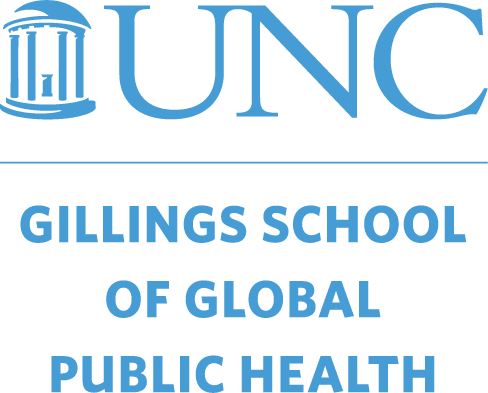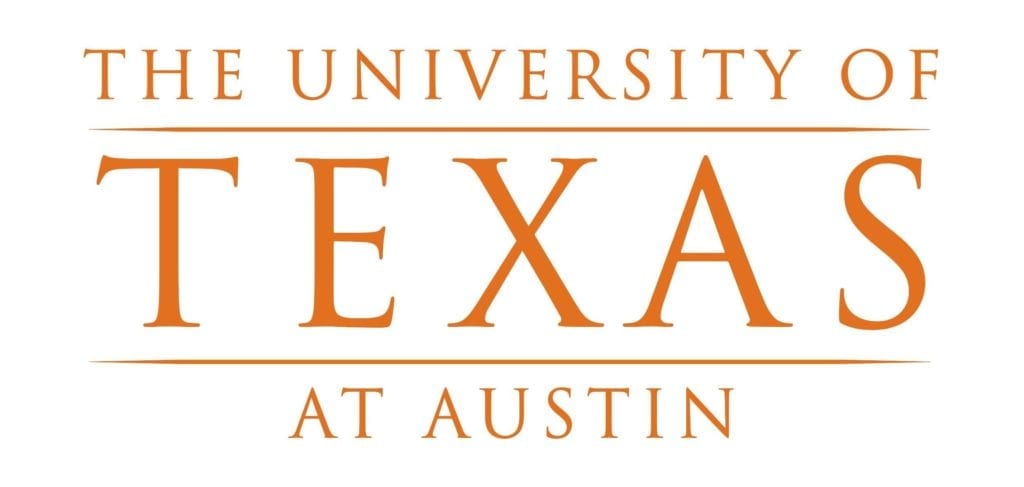Key Takeaways:
- UNC Chapel Hill and University of Michigan have two of the top public health undergraduate programs.
- The top public health undergraduate programs are designed to provide students with a comprehensive understanding of health issues, prevention strategies, and health promotion.
- These programs often include hands-on learning experiences such as internships or research projects, allowing students to apply theoretical knowledge in practical settings.
- Graduates from these programs are well-prepared for various roles in the public health field, including positions in government agencies, non-profit organizations, and private health sectors.
The best undergraduate Public Health programs prepare students for careers in one of the most crucial careers of the 21st century. When the Coronavirus pandemic struck the U.S. in 2020, the spotlight turned to the Centers for Disease Control and local Public Health Departments.
Communities and political leaders across the country looked to Public Health Departments (local, state, and federal) for guidance on navigating a dangerous infection. A public health degree can make you one of those leaders!
The U.S. Bureau of Labor Statistics classifies several careers in the broad category of Public Health. Those careers range from epidemiology, medical and health services, public policy, and also health program coordinator. A bachelor’s degree is the minimum education you need to work in the field. Salaries can vary from $41,000 to $60,000 annually, depending on the specialty.
Best Health Degrees has researched some of the country’s best bachelor’s programs in Public Health to create this ranking. We examined programs based on courses offered, length of the program, accreditation, admission requirements, as well as estimated cost. This ranking focuses on first-time students.
Our Method: Ranking the 25 Best Public Health Bachelor’s Programs
To rank the 25 Best Public Health Bachelor’s Programs, Best Degrees editors researched accredited, trusted programs of all kinds. From our initial pool, we ranked programs according to price, accreditation, reputation, and salary potential, using data from the Integrated Postsecondary Education Data System ( IPEDS), the National Center for Education Statistics (NCES), Niche, U.S. News and World Report, and other higher education rating publications.
All these programs have accreditation, most by the Council on Education for Public Health (CEPH). Therefore, you may qualify for federal student assistance.
1. University of North Carolina at Chapel Hill
Students interested in public health can choose from one of the four majors in this 120-credit hour BS in Public Health (BSPH) from UNC-CH’s Gillings School of Global Public Health. Bachelor of Science in public health major options are available in the Environmental Health Sciences, Biostatistics, Nutrition, and Health Policy Management departments.
This Council on Education for Public Health (CEPH) accredited Public Health program requires prerequisite courses, depending on your major. Students must also take general education courses in social sciences, English, physical and life sciences, humanities, and fine arts. Depending on your major, you may need to complete an internship or practicum, complete a senior final capstone project, and others. Most public health students apply for the major during their sophomore year.
Admission to UNC-CH asks you to complete either the Common Application or Coalition Application. Other required documents include a letter of reference, academic transcripts, and the Free Application for Financial Student Aid (FAFSA®). However, ACT and SAT scores are waived for Fall 2022 admission.
Estimated Tuition Cost: $3,509 to $17,099 per semester
Fast Fact: U.S. News and World Report ranks this #2 Public Health program in the nation.
School: Learn more about the public health degree here!
2. University of Michigan
This Ann Arbor School of Public Health at the University of Michigan offers two Public Health degrees: Bachelor of Arts (BA) in Community and Global Public Health and Bachelor of Science (BS) in Public Health Sciences. The program holds CEPH accreditation.
Among the core degree courses required are Public Health Systems: Achievements and Challenges, Population Health Determinants & Disparities, Data-Driven Solutions in Public Health, Community, Culture, and Social Justice (CCSJ) in Public Health, Public Health Biology and Pathophysiology, and more. Your major will require additional required coursework. Both majors have a culminating experience in Leadership Skills for Interprofessional Practice and Public Health Practice and Professionalism. Additionally, you’ll be taking general education classes as part of the 120-credit-hour curriculum.
Admission to the University of Michigan requires you to complete either the Coalition Application or the Common Application along with a $75 UM application fee. Along with the application, prospective students submit academic transcripts and a teacher evaluation. But, ACT scores or SAT scores are optional. However, the school may ask applicants for additional documentation.
Estimated Tuition Cost: $15,948-$52,266/per academic year
Fast Fact: Ranked #4 Public Health Schools in the nation by U.S. News and World Report
School: Learn more about the public health degree here!
3. Texas A&M University
This BS in Public Health (BSPH) from Texas A&M University holds accreditation from both CEPH and the Commission on Accreditation of Healthcare Management Education (CAHME).
This bachelor of science in public health degree requires 120 credit hours in Texas core curriculum studies and Public Health classes. Among the Public Health courses offered are studies in Epidemiology, Foundations of Public Health, Biological Bases of Public Health, Public Health Systems, Health Policy and Advocacy, Social Context of Public Health, and also Global Health. To finish your degree, students must complete a culminating experience. Furthermore, the school offers a new 3+2 Program in Epidemiology. In this program, students earn both their BSPH and MSPH degrees in five years.
The BSPH program is on both the College Station and McAllen campuses. Students apply using the Apply Texas application along with a $75 application fee. You may also need to complete an essay and report academic transcripts using Self-Reported Academic Record (SRAR). Letters of recommendation and resumes are optional. SAT scores or ACT scores are optional for the fall or spring of 2021 or 2022 academic years. You’ll also want to submit the Free Application for Financial Student Aid (FAFSA) to determine your financial needs.
Estimated Tuition Cost: $12,783-$39,340/per academic year
Fast Fact: This program ranks in the top 50 of Best Public Health programs by U.S. News and World Report
School: Learn more here!
4. University of California – San Diego
This BS in Public Health (BSPH) is the first bachelor’s degree of its kind from UCSD’s School of Medicine. The UC San Diego program prepares students with a solid foundation in critical thinking and promotion in the Public Health profession.
You’ll want to explore the concentrations in Public Health that are available with this bachelor of science in public health. The curriculum for this BSPH studies five core Public Health requirements: Environmental & Occupational Health, Public Health: Epidemiology, Biostatistics, Health Policy & Management, as well as Social and Behavioral Aspects of Health. Among the 120 credit hours you’ll take classes in general education, Primary Care and Public Health, Introduction to Public Health, Health Behavior and Chronic Diseases, Environmental and Occupational Health, etc. You’ll finish with a Senior Project.
The BSPH program is highly competitive, with limited enrollment. Admission to UCSD requires a 3.0 to 3.4 GPA or better. Application review uses a number of factors. They include academic accomplishments, achievements, awards, and talents. The school suspended the SAT test score or ACT test score requirement through the Fall of 2024.
Estimated Tuition Cost: $14,648-$44,402/per academic year
Fast Fact: Niche ranks this Public Health program #11/222 as the Best Colleges for Public Health in America
School: Learn more about the public health degree here!
5. University of Texas at Austin
You’ll have your choice of three options in this BSPH program from UT Austin. The options include a broadband approach to five areas of Public Health, a core and foundational curriculum, and six concentrations.
The public health degree curriculum includes foundation classes in Microbiology, Public Health, Social and Behavioral Sciences, and Nutrition and Physiology. Depending on your option, the degree offers studies in math, chemistry, biology, health policy and management, environmental health sciences, infectious diseases, nutrition, and more. You’ll also complete research projects under professional supervision in a public health agency or work with graduate school faculty at a variety of public health schools across Texas.
Admission has two tiers. Prospective students apply to UT-A as well as the College of Natural Sciences. The university accepts the Apply Texas or the Coalition applications (with a $75 fee), academic transcripts, ACT or SAT scores, letters of recommendation, and a resume.
Estimated Tuition Cost: $11,448-$40,032 per academic year
Fast Fact: UT-A ranks #20/222 in Niche’s Best Colleges for Public Health in America
School: Learn more about the public health degree here!
6. University of Florida
Located in Gainesville, UF offers a Bachelor in Public Health (BPH) public health degree designed to prepare you for an entry-level position in the field or a foundation for graduate studies.
You’ll complete studies in general education, UF health science electives, and core courses before starting Public Health studies in your junior year. The curriculum covers Public Health Concepts, Introduction to Biostatistics for Health Science and Public Health, Global Public Health, US Health Care System, etc. Your senior year will introduce you to studies in Public Health Management Leadership, Applied Epidemiology, and a practicum experience.
For admission to this program, you need admittance to the University of Florida and acceptance to the College of Public Health and Health Professions. You can apply to the school and the undergraduate public health association UF via the Coalition or the Common Application. You’ll self-report your academic transcripts, ACT scores, or SAT test scores, and also provide a personal essay.
Estimated Tuition Cost: $6,381-$28,659/per academic year
Fast Fact: Forbes rated the University of Florida as one of its Best Value Colleges in 2019
School: Learn more about the public health degree here!
7. University of California – Irvine
This program lets you choose between a CEPH-accredited BS in Public Health Sciences or a BA in Public Health Policy, you’ll want to explore the Public Health major at UC-I. The UCI public health degree program has four departments: Environmental and Occupational Safety, Epidemiology and Biostatistics, Health, Society, and Behavior, and also Population Health and Disease Prevention.
Both degrees have prerequisite studies in Principles of Public Health and Case Studies in Public Health Practice and have some classes that overlap. Curriculum offerings for the BS degree include studies in biochemistry, economics, epidemiology, genetics, global perspectives on health, and more. The BA degree offers classes in psychology, anthropology, economics, health policy and management, and both programs require a practicum experience.
Admission requires you to have 15 college-prep courses, a 3.0 GPA or better, an application, and submission of academic transcripts. You will also answer personal insight questions as part of the admission process.
Estimated Tuition Cost: $13,753-$43,507/per academic year
Fast Fact: UCI ranks #8 in the Top Public Schools category of U.S. News and World Report.
School: Learn more about the public health degree here!
8. Rutgers University
The New Brunswick, New Jersey campus of Rutgers University offers a BS in Public Health degree through the Edward J. Bloustein School of Policy and Public Policy.
This CEPH-accredited undergraduate public health degree curriculum has requirements in Principles of Public Health, Global Health Perspectives, Epidemiology, Research Methods, Public Health Law & Ethics, Leadership Seminar, as well as a Professional Practice Internship. The school encourages students to declare a Public Health major by junior year. Rutgers students should also consider a minor to accompany the Public Health major.
You’ll complete an online application ($70 fee) for admission consideration to Rutgers University. An essay, self-report academic transcripts using Self-Reported Academic Records, and SAT/ACT test scores are optional.
Estimated Tuition Cost: $15,003-$31,785/per academic year
Fast Fact: Forbes considers Rutgers # 29 public college in the nation
School: Learn more about the public health degree here!
9. University of Georgia
Located in Athens, Georgia, this university has two Public Health studies Bachelor of Science options in Environmental Health and Health Promotion.
In this public health program students complete general education studies in the first two years before beginning the public health degree. Both degrees require core classes. Depending on your major, (for Environmental Health) you’ll take environmental health science courses, environmental toxicology, solid and hazardous waste management, public health law, etc. Classes in disease prevention, research and design, program development, and others comprise the studies for the Health Promotion major. Regardless of major, students must complete a required field experience.
Criteria for admission to the University of Georgia for first-time students include an application, academic transcripts, letter of recommendation, as well as ACT/SAT test scores. Also, the school may request additional documents.
Estimated Tuition Cost: $12,080-$31,120/per academic year
Fast Fact: Niche designates UG #23/222 in the publications Best Colleges for Public Health in America
School: Learn more about the public health degree here!
10. University of Southern California
The Keck School of Medicine at USC awards two undergraduate degrees: a BS in Health Promotion & Disease Prevention Studies and a BS in Global Health. These programs train students to recognize public health issues that affect individual and global health.
Both degrees require general education courses as well as classes specific to the major. The BS in Health Promotion curriculum includes courses in introductory health promotion and preventing disease, principles of health behaviors, statistical and research methods, as well as an internship and directed research. Global Health class criteria involve an emphasis on biology, chemistry, global economics, research methods, and directed research. Both disciplines require 128 credit hours for completion of the public health degree.
USC uses the Common Application for admission to the university. Additionally, you need academic transcripts. However, SAT/ACT scores are optional. The school may ask you for a portfolio or resume for admission to your major. Keck School of Medicine faculty will review these items.
Estimated Tuition Cost: $60,275/per academic year
Fast Fact: The Keck School of Medicine ranks in the top 30 of U.S. News and World Report’s Best Medical Schools in Research
School: Learn more about the public health degree here!
11. Arizona State University
The BS in Public Health degree from ASU has a foundation focused on public health areas in infectious disease control, ethics, public health procedures, environmental health, and more.
Some of the required courses for this public health degree program include Epidemiology, Biostatistics, Health Promotion Program Planning and Implementation, as well as Cultural Aspects of Health. You’ll also be able to choose classes in Social Determinants of Health and Health Behavior, Health Theory, etc. A Field Experience working with Public Health professionals in community health education agencies and health settings. General Education classes will comprise your first two years at ASU.
There are three admission application options at ASU, the ASU application, the Common Application, or the Coalition application. Application fees range from $50-$70. You’ll submit official academic transcripts, the FASFA®, and SAT/ACT scores are optional.
Estimated Tuition Cost: $11,338-$29,428/per academic year
Fast Fact: Forbes rated ASU one of America’s Best Value Colleges in 2019
School: Learn more here!
12. University of South Florida
Located in Tampa, this is Florida’s first BS in Public Health degree from an accredited College of Public Health. The program provides you with the tools necessary for entry-level, public health positions in government, non-profit organizations, and also healthcare facilities.
The broad curriculum for this public health degree includes introductory courses in Public Health, epidemiology, Environmental and Occupational Health, US Healthcare, human diseases, biostatistics, health behavior, etc. Additionally, you’ll be able to declare a minor in Nutrition, Environmental Health, Infection Control, and Community Engaged Homeland Security & Emergency Management. You’ll need to complete 120 credit hours for the CEPH-accredited degree.
You can choose from the Common, Coalition, or Institution applications for university admission, a $30 application processing fee, SAT/ACT scores, academic transcripts, etc.
Estimated Tuition Cost: $6,410-$17,324/per academic year
Fast Fact: USF has the #19/222 Best Colleges for Public Health in America
School: Learn more about the public health degree here!
13. Ohio State University
You’ll have options with this BSPH in Public Health degree at Ohio State University in either Public Health Sociology or Environmental Public Health. (Note: OSU also offers an accelerated BSPH/MPH degree.)
You’ll take general education classes (English, humanities, social and behavioral sciences, etc.) in your first two years before public health-specific classes. Those public health degree classes include core studies in Introduction to Global Health, Introduction to Epidemiology, Role of Behavior in Public Health, Biostatistics for PH Research, Current Issues Global Environmental Health, US and International Health Care, etc. Each specialization in Environmental Public Health or Public Health Sociology has specific curriculum requirements. Both concentrations require a Capstone Project to finalize the degree.
Among the admission requirements to OSU are an application, official academic transcripts, ACT/SAT scores are optional as is a letter of recommendation. Students should also complete a FAFSA for financial aid application. You’ll need to apply for the Public Health major separately.
Estimated Tuition Cost: $11,518-$33,502/per academic year
Fast Fact: This program ranks #24 in U.S. News and World Report’s Best Public Health Schools undergraduate
School: Learn more about the public health degree here!
14. West Virginia University
Located in Morgantown, WV, you can earn a BS in Public Health from the only CEPH-accredited School of Public Health in the state. This program highlights three specializations in Patient Navigation, Public Health Sciences, and Community and Population Health.
This curriculum has general education studies as well as core Public Health classes. So, students can tailor their studies to pursue careers and meet their ambitions. The public health degree offers a strong foundation in Public Health coursework. You’ll be able to choose from a list of required Public Health courses in Issues in Environmental Health, Introduction to Social and Behavioral Science and Practice, Introduction to Health Policy, or Public Health Project Management. Clinical Research Methods and Practice, Social Determinants of Health, Field Experiences, and a capstone project finish the degree.
For admission, you’ll need a minimum GPA of 2.75 or better, a Common application, and a fee ranging from $50-$65 (depending on residency), academic transcripts, with the ACT/SAT test scores optional.
Estimated Tuition Cost: $9,672-$27,408/per academic year
Fast Fact: U.S News and World Report rates this WVU program #90 in its Best Public Health ranking
School: Learn more about the public health degree here!
15. San Diego State University
This School of Public Health at SDSU dates to 1976 and awards a BS in Public Health that will give you the knowledge and skills to work in a variety of public health settings. All students in the Public Health major must participate in an approved, two-week or longer, International Experience.
General Education studies make up the first two years. The Public Health curriculum has prerequisite courses in biology, sociology, chemistry, and also psychology. You’ll have a wide choice of courses in the major from Professionalism & Public Health, Public Health Research, Principles of Human Physiology, Environment and Public Health, and more. Emergency Preparedness and Disaster Response, Public Health and Food Safety, Nutrition, and also other electives are available. Furthermore, to complete the program, students pursuing this degree need research and field experience and an internship.
Admission to San Diego University is simple and straightforward, utilizing the Common application with a $55 fee, academic transcripts, essays, and an academic letter of recommendation. Admission to the Public Health degree program will require you to have a specific GPA in several courses.
Estimated Tuition Cost: $7,720-$19,600/per academic year
Fast Fact: The program ranks #31 in the U.S. News and World Report’s Top Public Health programs.
School: Learn more about the public health degree here!
16. University of Houston
The College of Education at the University of Houston has a 120-credit hour BS in Health that features three academic tracks in Health Promotion, Public Health, and Health Promotion for Allied Health Professions. For our purposes, we’ll look at the Public Health track.
Your first two years consist of general education classes, then you begin the major curriculum requirements. Among the 60 credit hour offerings are studies in Environmental Health, Health Promotion & Disease Prevention, Program Plan Health Profession, Foundation of Epidemiology in Public Health, Behavior Theory & Practice, and also Field Work in Community Health. This program has CEPH accreditation and prepares you to sit for the Certified Health Education Specialist certification of the National Commission for Health Education Credentialing (NCHEC).
You’ll apply for admission to the University of Houston by completing an online application (Apply Texas or Common) with a $75 fee, providing academic transcripts, and ACT/SAT test scores are optional.
Estimated Tuition Cost: $9,457-$21,673/per academic year
Fast Fact: The University of Houston ranks in the top 100 of Niche’s Top Public Institutions in America
School: Learn more about the public health degree here!
17. Tulane University
One of Louisiana’s top universities, New Orleans’ Tulane University has a Bachelor of Science in Public Health (BSPH) that will set the groundwork for a successful career in Public Health. (Tulane also offers a combined BSPH/MPH option.)
The program requires core Public Health coursework in Foundations of Environmental Health, Introduction to Public Health, Social and Behavioral Perspectives in Public Health, Foundations in Epidemiology, Foundations and Formulation of Public Health Policy, etc. You’ll have a choice from an impressive offering of electives in the field, including studies in Latino Health in the United States, Evidence-Based Public Health, Public Health Communication, Resilience and International Disasters, as well as other important topics. Capstone Projects (including international study) and internships cap your degree program.
Tulane is now SAT/ACT test scores optional and accepts the Common or Tulane admission applications. You’ll also need to provide a high school transcript and a Guidance Counselor recommendation. Tulane University also offers Louisiana Promise, especially for students from the Pelican State.
Estimated Tuition Cost: $58,852/per academic year
Fast Fact: Tulane ranks an impressive #15 in U.S. News and World Report’s Best Public Health Program in its national rankings
School: Learn more about the public health degree here!
18. New York University
You’d be hard-pressed to find a BS in Global Public Health that offers more concentrations than this one from New York University. This program has 13 specialties, in collaboration with five NYC schools, from which you can choose.
The degree has core courses required in Health and Society in a Global Context, Epidemiology for Global Health, Health Policy in a Global World, Biostatistics for Public Health, as well as team-based and individual Experiential Learning in Global Public Health. There’s an impressive list of elective courses offered in medical ethics, research, clinical practice, nutrition and health (in pregnancy, childhood, and adolescence.) Once you’ve completed 64 credit hours, you’re eligible to declare a major from disciplines in history, anthropology, chemistry, nursing, social work, and also communicative disorders. You must also complete a semester abroad with this program.
NYU uses the Common application for admissions (along with an $80 processing fee), ACT/SAT scores, and you’ll self-report your academic transcripts via the Self Reported Academic Record (SRAR). Additionally, the school may require other documents to complete your application.
Estimated Tuition Cost: $54,880 per academic year
Fast Fact: This school ranks #31 in Best Public Health programs by U.S. News and World Report
School: Learn more about the public health degree here!
19. Temple University
Founded in 1888 in Philadelphia, Temple University’s Department of Social and Behavioral Sciences of the College of Public Health awards a 120-credit hours BS in Public Health.
General education courses are part of the degree plan and Public Health classes in Nutrition and Health, Disease Prevention and Control, Ethnicity, Culture and Health, Introduction to Research Methods, Introduction to Epidemiology, and a Public Health Internship will be among your studies. You’ll choose from a wide range of elective courses in Pubic Health such as Contemporary Health Issues, Counseling Techniques for Health Professionals, and also Special Populations. Cognate studies also include topics such as Global Health, Urban Health, Death and Dying, and Medical Terminology.
Temple University’s test scores are optional in admissions, but you’ll need to complete a Common application (with a $55 fee) and you’ll self-report academic transcripts. The application also requires an essay. However, a letter of recommendation is optional.
Estimated Tuition Cost: $16,080-$28,992 per academic year
Fast Fact: U.S. News and World Report considers the Temple University program to be #41 in its Best Public Health programs
School: Learn more about the public health degree here!
20. University of Arizona
Located in Tucson, Arizona, the Mel and Enid Zuckerman College of Public Health at UA offers two undergraduate, public health degree programs with a BS in Public Health and a BA in Health Promotion Practice. There are several tracks in the BS program: Public Health Practice, Global Health, Health Promotion, Environmental and Occupational Health, Quantitative Methods in Public Health, Health Systems Theory and Practice, and a unique, One Health program.
Accredited by CEPH, the curriculum for this degree requires core classes. Regardless of your specialty track, you’ll take courses in Health Care in the US, Introduction to Epidemiology, Principles of Health Education and Health Promotion, Biology in Public Health, Global Health, Public Health Nutrition, as well as Field Work in Public Health. You’ll then choose topics in your particular emphasis as well as complete electives in this 120-credit-hour degree program.
You’ll need admittance to the university as well as the School of Public Health. As with most schools, the school requires an application with a fee and also academic transcripts for admission. The university does not require ACT/SAT test scores.
Estimated Tuition Cost: $12,716-$36,743/per academic year
Fast Fact: This program ranks #41 in U.S. News and World Report’s Best Public Health Schools
School: Learn more about the public health degree here!
21. University of North Texas
This College of Health and Public Service at UNT offers a BS in Public Health degree with five areas of concentration in Epidemiology, Emergency and Disaster Management, Population Studies, Health Services Administration, and Biological Sciences.
You complete 39 credit hours of core coursework. Among the topics are Introduction to Public Health, Community & Public Health Education, Ethics in Public Health, Global Public Health, Public Health Informatics, Public Health & Health Policy, Social Justice & Behavioral Foundations in Public Health, Community & Public Health Education, and also a capstone project. Furthermore, the program offers a wide array of elective coursework that will augment your chosen concentration. The 120-credit hour degree requires general education, 39 hours in the major with 9 hours in Public Health electives, and also an additional 30 hours of free electives.
UNT accepts the ApplyTexas application for Texas residents and the Common Application for non-Texas residents. The application fee is $75 regardless of which application you use. Applicants also need to submit SAT/ACT scores and academic transcripts. However, you may qualify for guaranteed admission if you meet certain criteria.
Estimated Tuition Cost: $11,090-$20,906/per academic year
Fast Fact: UNT ranks #143/676 in Niche’s Top Public Universities in America
School: Learn more about the public health degree here!
22. Appalachian State University
This 122-year-old, North Carolina university has a BS in Public Health that will provide you certifications as a Certified Health Education Specialist (CHES), Physical Activity in Public Health Specialist (PAPHS), and Health Coaching through several organizations.
General Education studies are compulsory before beginning the Public Health core coursework. You’ll study Introduction to Public Health, Introduction to Health System Organization, Communication in Public Health, Public Health Interventions, Biostatistics, Community Health, Chronic and Infectious Diseases, and others. Applied classwork is in Global Public Health, Seminar in Rural Public Health, Substance Abuse Prevention, etc. You can also study Basic Statistics, Nutrition and Health, Introduction to Statistics, and Reasoning with Statistics. Students also complete a required internship. Common placements include health-related agencies such as wellness programs, hospitals, and also health departments.
Appalachian State University uses the Common Application ($65 application fee) for admission. Other requirements are academic transcripts, ACT/SAT scores (Note: Official test scores (ACT/SAT) will be not required for admission for first-year students), and other documents may be requested.
Estimated Tuition Cost: $7,410-$22,217/per academic year
Fast Fact: ASU is #1 by U.S. News and World Report’s in Most Innovative Schools.
School: Learn more about the public health degree here!
23. University of South Carolina
The state capital of South Carolina, Columbia, is home to the state’s premier university and the Arnold School of Public Health. You’ll have the option to earn a BA or BS in Public Health. The BS degree is a great foundation if you’re wanting to advance to study medicine, public health sciences, or clinical professions. The school’s BA diploma will prepare you to enter graduate studies in “social-science-based” graduate degrees. CEPH accredits both degrees.
The BA in Public Health uses a broad curriculum in sociology and behavioral sciences and the BS focuses on natural-science studies. Curriculum classes include Personal and Community Health, Health Problems in a Changing Society, Principles of Epidemiology, Introduction to Public Health, Environmental Pollution and Health, and also Introduction to Health Care Management and Organization. You’ll also participate in an independent research project or a field experience in Public Health.
First-year admission documents include an application (with $65 processing fee), unofficial academic transcripts, and a school report form completed by your high school counselor. However, you may not need SAT/ACT test scores.
Estimated Tuition Cost: $12,688-$33,928/per academic year
Fast Fact: The Arnold School of Public Health ranks #41 in Best Public Health Schools as determined by U.S. News World Report
School: Learn more about the public health degree here!
24. University of Alabama
This Tuscaloosa university offers three options for its BS in Public Health degree. You can pick from Health Education and Promotion Concentration, Health Professions Concentration, or Accelerated BS/MS options.
The degree requires 120 credit hours for completion and you’ll take general education classes as well as 33 hours of core classes in Public Health. Some of those core courses are Introduction to Public Health, Environmental Health, Health Behavior Theory, Drugs, Society, & Human Behavior, and more. You’ll also take 18 hours in your concentration. In finishing your program, and depending on your concentration, you’ll participate in an internship, capstone project, or independent study.
You’ll need to complete an admission application (with a $40 fee), ACT/SAT test scores (Test scores are optional for Spring, Summer, or Fall 2021 semesters), and academic transcripts. The University of Alabama has Admission Recruiters who will help you with your admission process.
Estimated Tuition Cost: $11,620-$31,090/per academic year
Fast Fact: Niche rates UA #53/676 in its Top Public Universities in America
School: Learn more about the public health degree here!
25. University of Nebraska-Omaha
Established in 1908, UNO is Nebraska’s premier university. You can earn a BS in Public Health that requires 120 credit hours. (The university also provides an integrated, or accelerated, BS in Public Health degree and an MA or MS in Health and Kinesiology with a concentration in Health Behavior graduate degree requiring a total of 144 credit hours.)
Following general education studies, you’ll start the core courses in the BSPH. This undergraduate degree offered by UNO has a core curriculum. Classes include Foundations in Public Health, Epidemiology & Prevention of Disease, Public Health Informatics, Global Health, Public Health Planning and Organization, Public Health Policy, Community Health, etc. You’ll also choose elective coursework from topics like Applied Nutrition, Stress Management, Injury Prevention in Public Health, and others. Students also complete an internship in a state or local health department under the supervision of a Public Health professional.
First-year admission involves an application and $45 fee, ACT/SAT test scores, official academic transcripts, and additional documents as requested. UNO also offers Assured Admission for First-Year Applicants for students who graduate from a regionally accredited high school (or completed a GED) and who meet specific core course requirements.
Estimated Tuition Cost: $8,136-$21,718/per academic year
Fast Fact: UNO ranks #528/1,572 in Best Value Colleges in America as published by Niche
School: Learn more about the public health degree here!

What is Public Health?
Public Health isn’t a new development in the U.S. The field actually began in 1798 when Congress passed the Act for the Relief of Sick and Disabled Seamen and established the US Marine Hospital Service (MHS). Throughout the years, Public Health professionals have investigated and helped control diseases that invaded the population, such as cholera, typhoid, smallpox, tuberculosis, HIV, influenza, and many more.
The field of Public Health focuses on the relationship between health and culture and how it affects the health and well-being of the public. Professionals who pursue public health design and implement policies and health education programs that promote good health for the population overall. Public health majors examine health behavior, healthcare access, and health concerns to assess public health and evaluate a community’s health. Then they focus on policy development, health promotion, and disease prevention for a whole community.
What is a Bachelor’s in Public Health Degree?
Bachelor’s degrees in public health focus on health education and healthcare policy on a community level. An undergraduate public health degree can be either a Bachelor of Arts (BA) or a Bachelor of Science (BS). Additionally, there are other similar liberal arts degrees that may have a public health focus, specialization, or a minor.
Why Should You Major in a Public Health Degree?
An undergraduate degree in Public Health serves two purposes. One, it will prepare you for entry-level positions in the field as an educator, program director, policy administration, health services administration, etc. Second, a BS or BA in Public Health will provide you with the educational qualifications to enter a graduate program and earn the Master of Public Health (MPH) degree.
Public health professionals with an MPH degree can move into higher-paying positions with increased opportunities. Graduate programs focus areas range from medical sciences to community development. A white paper published in 2020 by the National Institutes of Health (NIH) estimated a dramatic shortfall of a quarter of a million BSPH, MSPH, or PhD-educated Public Health professionals over ten years.
Accreditation for Public Health Degree Programs
Perhaps, the most important factors to consider in choosing a program are curriculum and accreditation.
Regional Accreditation
Schools should have regional accreditation from the Department of Education. Some affiliated institutions are the Higher Learning Commission (HLC), Middle States Commission on Higher Education (MSCHE), New England Association of Schools and Colleges (NHASC), and others.
Program Accreditation
The best Global Health programs and the best Public Health programs typically have accreditation from the Council on Education for Public Health (CEPH), meaning the curriculum meets national quality standards.
How Do You Choose a Public Health Degree Program?
You’ll want to look for a program curriculum that provides a solid foundation in public health topics such as epidemiology, biostatistics, environmental health sciences, social and behavioral sciences, and health policy. An internship or field experience is a great opportunity for you to get real-world experience, working in a Public Health department or agency under the supervision of a working professional in the field.
Some of the best schools also offer an orientation course, research centers, a study abroad program, and student organizations to support and enhance student life. Excellent programs also offer the student body career services and professional development opportunities.
How Long Does it Take to Earn a Public Health Degree?
It takes most students 4 to 5 years to complete a Bachelor’s in Public Health. In addition, most programs require students to complete 120 credit hours and a capstone project or internship in the final year. Training increases a student’s real-world knowledge and improves job prospects.
Additionally, many students use an undergraduate degree in Public Health as a first step toward graduate work. Program graduates go on to advanced degree programs in nursing, social work, medicine, and also healthcare administration.
What Do You Learn in a Public Health Program?
There are core areas within Public Health. They include social and behavioral sciences, biostatistics, health policy and management, nutrition, epidemiology, and occupational and environmental health sciences. Biostatistics prepares students for entry-level statistical and professional programming careers. Nutrition combines biochemical, behavioral, and food and nutrition sciences. The best public health degrees promote critical thinking skills and have general classes and required core courses (or major coursework).
Selected classes, topics, and coursework in a public health program are listed below for undergraduate students.
general coursework
General education coursework may include the classes below.
- Behavior Science classes
- Human Health or Child Health
- Political Science
- Business Administration
- Human Anatomy
- Organic Chemistry
- Food Science
- Exercise Science
- Human Development
- Health Policies
- Human Sexuality
- Women’s Studies
major coursework
Upper-level courses and major coursework in a public health science degree may include the classes below.
- school health education
- diverse populations
- urban planning
- data science
- public health preparedness
- environmental science
- community education
- public health science
- health administration
- health care systems
- community health services
- health literacy
- environmental health services
- health disparities
- environmental hazards
- healthcare administration
- occupational safety
How Much Does a Public Health Program Cost?
Public health tuition varies from school to school. Additional factors that can affect the cost include state residency status and whether you attend a private college or public university. Generally speaking, in-state tuition is more affordable than out-of-state tuition. However, some online degree programs offer the same rate or in-state tuition to online students.
Public institutions have lower tuition rates than private universities. However, some private schools have competitive financial aid packages. One of these can bring down the out-of-pocket cost so it is lower than a state school. Also, many schools offer lower tuition rates for military personnel or veterans.
How Can You Save Money on a Public Health Degree?
To save money on a public health degree, some students complete their first 2 years at a community college. Another way motivated students can pinch pennies is to find an accelerated bachelor’s-to-master’s of public health degree program. An accelerated program can save you money by shaving some of the time off your degree. And, you can also start to earn money faster by graduating a year early.
Furthermore, you should apply for financial aid by completing the Free Application for Federal Student Aid (FAFSA) to determine if you qualify for grants and loans. Additionally, many schools use the FAFSA for scholarship consideration.
Where Can You Work With a Bachelor’s in Public Health?
Careers in the public health field are in the non-profit sector, along with local and state Public Health agencies, and on the federal level with the Department of Health and Human Services (DHHS).
The Centers for Disease Control (CDC) website has a section devoted to employment pathways for Public Health jobs and additional training options. General roles in public health include researchers, educators, and social workers.
Is Getting a Bachelor’s in Public Health Worth It?
The fact is that the field of public health has many career opportunities. Graduates do not only work for universities and government agencies. Someone who earned their first undergraduate degree in public health can make a positive difference in a broad range of diverse settings. Private sectors, public safety, emergency preparedness, health education, disease prevention specialists, and many other roles provide ample opportunities.
Jobs in Public Health
Some of the jobs finding health solutions in this field are listed below. Public health graduates who pursue graduate studies may qualify for some of the same roles. However, graduates of a master’s program can earn a much higher salary on the same career paths.
- Public Health Advisor
- Community Health Worker
- Epidemiologist
- Public Health Analyst
- Health Coach
- Community Service Manager
- Health Educator
- Medical Service Manager
- Community Health Specialist
- Public Health Nutritionist
- Mental Health Counselor
What is the Salary with a Bachelor’s in Public Health?
The salary and earning potential of a bachelor’s in public health can vary. Factors that determine salary include the role, prior experience, and geographic location. Below is the May 2021 BLS salary information for selected public health jobs and public health professions.
- Health Educators or Community Health Workers – average annual salary is $48,860 per year
- Community Service Managers – average annual salary is $74,000 per year
- Mental Health Counselors or Substance Abuse Counselors – average annual salary is $48,520 per year
- Dietitians and Nutritionists – average annual salary is $61,650 per year
What is the Public Health Job Outlook?
Overall employment in public health is growing. The BLS expects Health Education Specialist and Community Health Worker jobs to grow 17 percent from 2020 to 2030. In the same period, Community Service Managers will grow by 15 percent and Mental Health Counselors at a rate of 23 percent. So jobs in the public health sector are growing faster than average.
How Do You Get a Job in Public Health?
A bachelor’s degree in Public Health is a great start to landing an entry-level position in a community health setting or related field. How, and where, you apply will depend on your interests and long-term goals.
Personal networking is a helpful way to gain a foothold on a job. Don’t overlook the importance of a field experience or internship in helping you not only gain real-world experience but also make valuable contacts in the field.
Websites such as Linkedin, Glassdoor, Indeed, Monster, or PayScale can guide you to job openings in Public Health, as can local and state Public Health agency websites.
Career Advancement with a Master’s Degree in Public Health
Students interested in advancing their careers in public health can earn a public health certificate, master’s degree, or doctoral degree. An MPH program is the most common path. But, more of the master’s degrees are listed below.
- Master of Public Health (MPH) degree
- Dual or joint program MPH and Juris Doctorate (JD)
- Master of Health Administration (MHA) degree
- Dual or joint degree MPH and Master of Social Work (MSW)
- Master of Science in Public Health (MSPH)
- Master of Health Sciences (MHS)
Other Undergraduate Public Health Programs
We did not include all of the public health bachelor’s degree programs. So, below are a few more national universities and other schools you may want to check out.
- Ohio Northern University
- California State University
- Western Illinois University
- University of California Berkeley
- Washington University
- Northwestern University
- Indiana University
- Winona State University
- Johns Hopkins University
- The University of North Carolina at Charlotte
- Stanford University
- Yale University
- University of Minnesota Duluth
Related:
- Best Online Bachelor’s in Public Health
- What Can I Do With a Bachelor in Public Health?
- Fastest Online Bachelor’s in Public Health
- What Can I Do With a Masters in Public Health?
- Jobs With a Masters in Public Health
- Best Online Bachelors in Occupational Health
- Best PhD in Health Promotion Programs
- Kinesiology and Exercise Science Salary with an Associate Degree


























